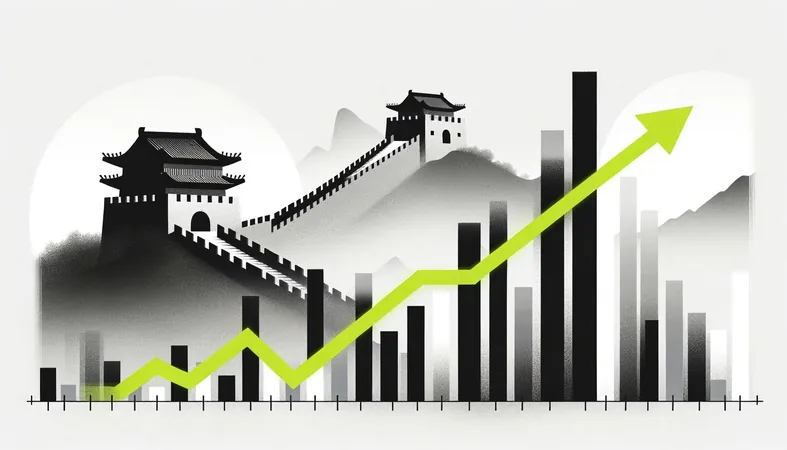
China and Hong Kong Markets Surge on Positive Economic Indicators and Policy Optimism!
2024-12-02
Author: Ming
What's the scoop?
The financial markets in China and Hong Kong are experiencing a notable boost thanks to promising manufacturing figures and a wave of optimism surrounding ongoing policy assistance from Beijing.
What does this mean for investors?
The stock exchanges in China and Hong Kong are witnessing an upward trend, propelled by promising economic data and the anticipation of continued governmental interventions. The Shanghai Composite Index rose by an impressive 1.02%, building on a solid 1.4% increase from November, while the CSI300 Index, a benchmark for China's leading companies, advanced by 0.7%, with gains primarily observed in the auto, real estate, and healthcare sectors. Meanwhile, in Hong Kong, the Hang Seng Index inched upward by 0.23%.
This positive movement aligns with the Caixin/S&P Global manufacturing PMI, which reached 51.5 in November—marking its highest level since June and surpassing analysts' expectations. Experts at Citi attribute this economic uplift to expected policy support and healthy export growth. However, they caution that strong domestic policies will be imperative in navigating possible future global issues.
Why does this matter to you?
For the markets: The outlook is increasingly positive, and investors are beginning to position themselves strategically for upcoming opportunities.
With these encouraging signals, investors find themselves cautiously optimistic, concentrating on short-term strategies while they await insights from the Central Economic Work Conference. The anticipation of prolonged monetary easing has already led to a drop in China's 10-year government bond yields, which are now below 2%, marking the lowest point since April 2002. These financial events suggest a promising outlook for sustained market growth and stability, provided the necessary policies materialize.
The broader context: Understanding global financial tides.
The global spotlight is firmly on China’s economic strategies, especially against the backdrop of comments from the U.S. regarding currency challenges with BRICS nations. The yuan's recent dip to a four-month low exemplifies the ongoing global economic dynamics. As China navigates these complex issues, consistent policy support remains critical for stimulating domestic growth and keeping China competitive on the world stage. The ramifications of these developments could significantly influence global trade and investment patterns, making it essential for the international community to closely observe Beijing's responses to both internal and external pressures.


 Brasil (PT)
Brasil (PT)
 Canada (EN)
Canada (EN)
 Chile (ES)
Chile (ES)
 España (ES)
España (ES)
 France (FR)
France (FR)
 Hong Kong (EN)
Hong Kong (EN)
 Italia (IT)
Italia (IT)
 日本 (JA)
日本 (JA)
 Magyarország (HU)
Magyarország (HU)
 Norge (NO)
Norge (NO)
 Polska (PL)
Polska (PL)
 Schweiz (DE)
Schweiz (DE)
 Singapore (EN)
Singapore (EN)
 Sverige (SV)
Sverige (SV)
 Suomi (FI)
Suomi (FI)
 Türkiye (TR)
Türkiye (TR)